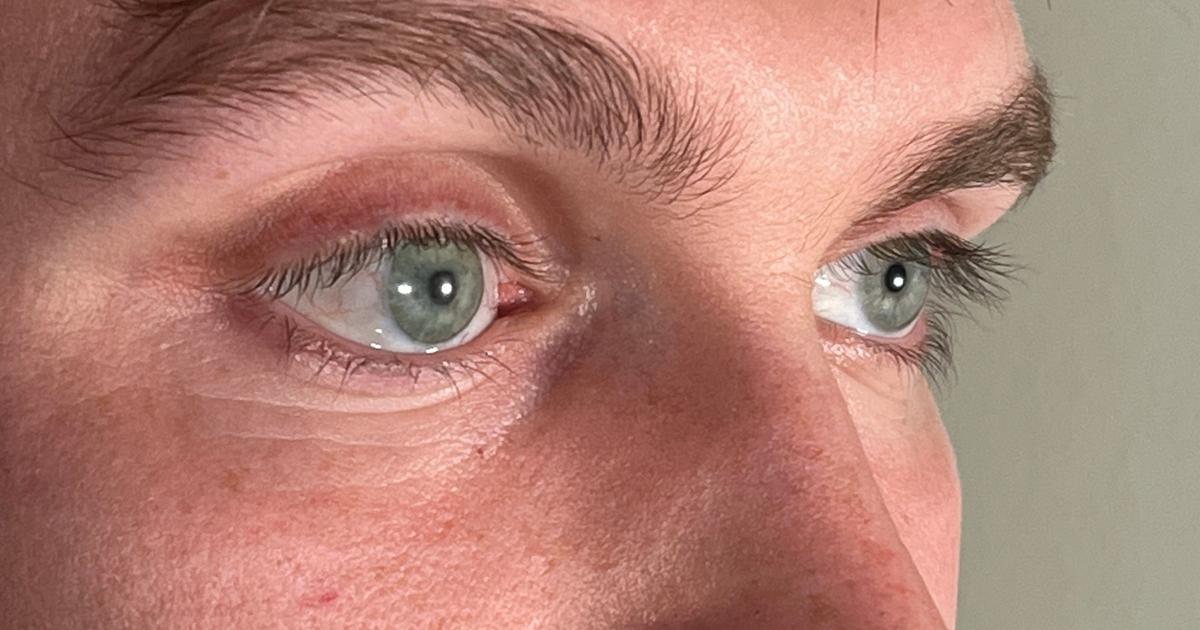Enlarge image
Markus Rehm after his victory in the long jump in the T64 category: "I hope that there will be many more athletes who will fight for this place with me"
Photo:
ATHIT PERAWONGMETHA / REUTERS
Of course, said Markus Rehm a few days ago in the athletes' village in Tokyo, he would be happy if his lonely days at the top of the world were gradually numbered.
“I've been up for so long now.
Everything has it's time.
The stronger the competition, the more a gold medal is worth. "
The 33-year-old long jumper from Göppingen in Baden-Württemberg wouldn't even have a problem if the gold medal at the Paralympics hadn't gone to him anymore. "I wish that there would be a lot more athletes who fight with me for this place," he said.
On Wednesday, Rehm, who is amputated below the knee on his right leg, clearly won the Paralympic gold medal in the T64 category for the third time in a row. It wasn't enough for a new world record in Tokyo. But the 8.62 meters that he has already jumped in his career has not been exceeded by anyone else. No athlete with or without a disability can jump as far as Rehm. For a long time he has also been arguing about authorization to start at the Olympic Games, which he has not yet received. The opponents of Rehm's participation in the Olympics suspect an advantage from his prosthesis. Rehm himself rejects this.
At the Paralympics, on the other hand, nobody accuses him of an unfair advantage.
Whereby it is the exceptional German athlete himself who says with reference to the technique: »Of course I have conditions that other athletes dream of.
I get my prostheses from my sponsor.
I don't have to pay anything for it.
And if one doesn't fit me exactly, I put it away and get a new one. ”Markus Rehm has more than ten high-quality prostheses in the basement.
"It's actually a shame that they just lie there."
All over the world, including more affluent countries, there is a lack of equipment for people with a disability to exercise.
As a teenager, Markus Rehm, who lost his right lower leg in a wakeboard accident at the age of 14, was one of them.
He came to parasport by chance when Heinrich Popow, who later won the gold medal in the sprint and today's prosthesis maker, approached him at a trade fair. Shortly afterwards, he was spontaneously given a prosthesis as an "investment in the future," as he was told. "That changed my life," Rehm remembers today.
Many athletes who succeed in the Paralympics tell similar stories.
This also raises the question of how many more top athletes or amateur athletes there would be if access to equipment weren't such a major hurdle.
"In Italy the equipment is only provided if you can show good performance," said fencing gold medalist Bebe Vio these days.
“But how can you get good if you don't already have equipment?” The Ugandan swimmer Husnah Kukundakwe, the youngest participant in these games at the age of 14, tells about her country: “Hardly anyone can pay for wheelchairs, prostheses or something like that.
I think that's one of the reasons why people with disabilities often hide. "
Rehm supports a colleague with an unused prosthesis
Markus Rehm, who brought one of his unused prostheses to Tokyo for a Turkish athlete friend, spoke of a simple idea: "You need a platform on which you can exchange your equipment." He has had the idea for a long time. “Even if a prosthesis doesn't fit exactly, that's better than nothing. Then you can at least get started. «Johannes Floors, who won bronze at 100 meters in the T64 category, was already encouraged by this idea.
Officials of the German team also welcome Rehm's proposal. The fact that Germany is still one of the strongest paranations in the world, despite the weaker performance in Tokyo so far, is also due to easier access to expensive equipment. Minors can now receive prostheses through health insurance. But this is not the reason why you want to be among the best in the world. In general, there is a desire that disabled sport will continue to grow worldwide, even if this leads to fewer medals for Germany and other rich countries.
Disabled sports still have plenty of growth potential. Shortly before the Tokyo Games opened, the International Paralympic Committee (IPC) launched the “WeThe15” campaign, with which several international organizations, including the United Nations, are trying to increase the participation of people with disabilities. 15 percent of the world's population, or 1.2 billion people, have a disability. But only a fraction has had access to sport so far. One wants to negotiate with governments, said IPC spokesman Craig Spence a few days ago, that sports equipment would be more cheaply accessible.
But the IPC apparently does not intend to make the devices available for free. In response to a request from SPIEGEL, Spence wrote in an email: “That's a nice idea. But an exchange platform is currently not a priority area for the IPC. ”Instead, they want to work on ensuring that more trained staff around the world will be able to manufacture prostheses and other devices precisely. The IPC works specifically with prosthesis manufacturers, such as the German company Ottobock, which also has a workshop in Tokyo where the athletes can repair their equipment.
At Ottobock, too, where people earn money selling devices, they react skeptically to the idea of a swap board.
On request it says: »The decisive factor in the supply of aids - whether new or used - is the precise adaptation to the individual needs of the users by orthopedic specialists.
This applies to prostheses as well as orthotics and wheelchairs. “In the worst case, other physical damage could occur through incorrectly or poorly adapted aids.” An unregulated consumer market would be “comparable to the unregulated sale of prescription drugs.”
The importance of trying
Markus Rehm, who is a master orthopedic technician himself and helps develop his own blades, doesn't see this as the biggest problem.
Possible dangers differ from case to case and should not be considered a blanket argument against the platform he is considering.
“It's important that you can try something out.
Otherwise you never know what you like. ”So it was with him too.
"And the answer to questions about safety is a disclaimer," says Rehm.
Everything else is a matter of detail.
But he cannot count on support from those institutions that could offer the largest platform and reach for such an exchange.








/cloudfront-eu-central-1.images.arcpublishing.com/prisa/D67ESGDWRQDANN4TDVQRIHFWZM.jpg)





